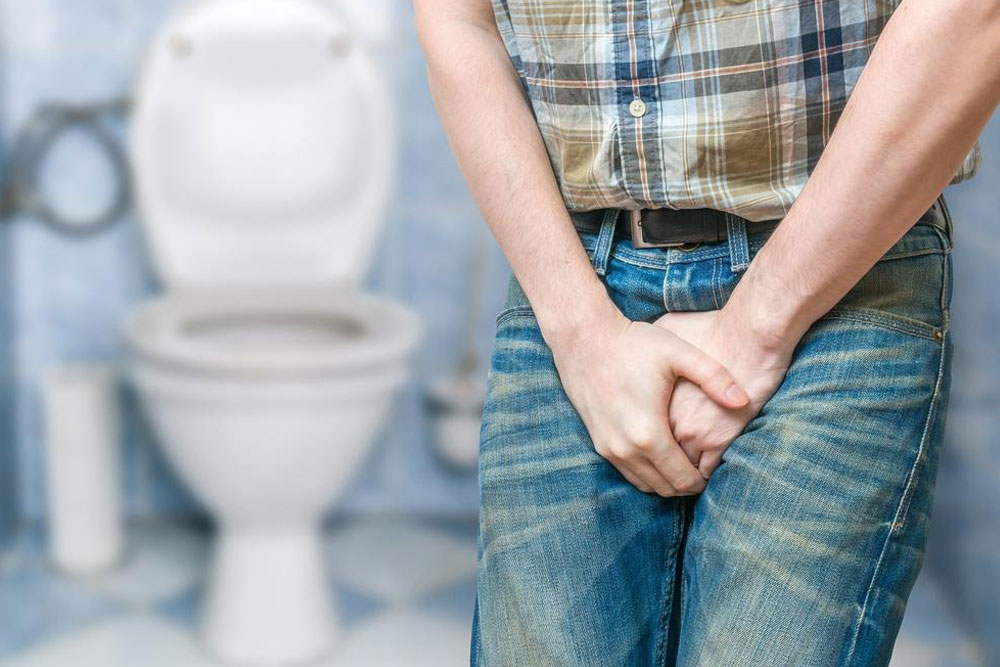Comprehensive Guide to Understanding Symptoms and Causes of Frequent Urination
This comprehensive guide explores the causes, symptoms, and management strategies of frequent urination. It highlights key medical conditions linked to increased urinary frequency and offers practical advice for symptom relief. Early diagnosis and lifestyle adjustments are essential for effective treatment, making this article a valuable resource for individuals experiencing urinary concerns. Learn about when to seek medical help and how to adopt healthy habits to improve bladder health and overall quality of life.

In-Depth Exploration of Symptoms and Underlying Causes of Frequent Urination
Frequent urination, medically known as polyuria, refers to the need to urinate more often than usual, which can significantly impact daily life and sleep quality. While occasional frequent urination might be harmless, persistent or severe cases often indicate underlying health issues that require attention. Recognizing the signs and understanding the various causes are crucial steps toward effective management and treatment.
Typically, healthy adults urinate between four to six times within a 24-hour period. When this frequency exceeds normal levels—particularly if accompanied by other symptoms—it warrants further investigation. Common symptoms associated with frequent urination include the presence of blood in the urine (hematuria), pain or burning sensations during urination, lower abdominal pain, and a sudden or urgent need to urinate — often described as urinary urgency. These signs can help healthcare professionals differentiate between benign issues and more serious health conditions.
Understanding the Causes Behind Frequent Urination
Frequent urination can stem from a variety of causes, ranging from lifestyle choices to significant medical conditions. Many factors influence urinary habits, and identifying the root cause is essential for effective treatment. The most common causes include:
High Fluid Intake: Consuming large quantities of fluids, especially caffeine and alcohol, can increase urinary frequency.
Alcohol Consumption: Alcohol acts as a diuretic, encouraging the kidneys to produce more urine.
Urinary Tract Infections (UTIs): Infections in the urinary system can cause irritation, leading to increased urgency and frequency to urinate.
Overactive Bladder: A condition characterized by involuntary bladder contractions, resulting in frequent urges to urinate.
Prostate Conditions: Enlarged prostate or prostatitis in men can obstruct urine flow and cause frequent urination.
Diabetes Mellitus: High blood sugar levels lead to increased urine production as the kidneys work to eliminate excess glucose.
Neurological Disorders: Conditions such as stroke, multiple sclerosis, or spinal cord injuries may interfere with nerve signals that control bladder function.
Medications and Treatments: Diuretics, certain antidepressants, and radiation therapy can also contribute to increased urination.
In addition to these, other factors such as anxiety, dehydration, and incomplete bladder emptying may also play a role. It is vital to consult a healthcare provider to determine the precise cause, especially if the condition persists or worsens.
Symptoms Signaling Urinary Problems
Beyond frequent urination itself, several associated symptoms can provide clues about underlying health issues. Noticing these signs early can prompt timely medical evaluation and intervention. Key symptoms include:
Blood in Urine (Hematuria): Indicates possible infection, kidney stones, or other serious conditions.
Pain or Burning Sensation: Usually signals urinary tract infection or inflammation.
Urinary Hesitancy or Difficulty: Trouble starting urination or weak stream may indicate prostate problems or urinary obstruction.
Lower Abdominal or Pelvic Pain: Could be linked to infections, stones, or organ issues.
Sudden Urgency and Incontinence: Loss of bladder control may result from nerve damage or overactive bladder.
Fever and Malaise: Accompanying infection signs that require prompt medical attention.
Recognizing these symptoms early is critical for diagnosis and effective management. Ignoring persistent signs can lead to complications, including kidney damage or chronic bladder problems.
Risk Factors and When to Seek Medical Help
Several risk factors predispose individuals to urinary problems, and awareness of these can promote proactive healthcare measures. Some notable risk factors include:
Dehydration: Can cause concentrated urine and urinary issues.
Infections: Recurrent UTIs or other infections increase the risk of persistent symptoms.
Bladder or Kidney Stones: Can obstruct urine flow, leading to increased frequency and pain.
Neurological Conditions: Multiple sclerosis, Parkinson's disease, or spinal injuries can impair nerve signals and bladder control.
Medications: Certain drugs, especially diuretics, can elevate urination frequency.
Individuals experiencing persistent or worsening symptoms should consult a healthcare professional promptly. Timely diagnosis allows for targeted treatment, preventing potential complications like kidney damage or chronic urinary issues.
Strategies for Managing and Reducing Frequent Urination
While frequent urination can be concerning, several strategies can help manage symptoms effectively. These include lifestyle modifications, exercises, and medical interventions tailored to the underlying cause. Implementing these approaches can significantly improve quality of life.
Hydration Management: Maintain a balanced fluid intake, avoiding excessive consumption of caffeine and alcohol.
Kegel Exercises: Strengthening pelvic floor muscles can improve bladder control, especially useful in cases of overactive bladder or incontinence.
Dietary Adjustments: Reduce intake of irritants like spicy foods, caffeine, and artificial sweeteners.
Medication: Doctors may prescribe anticholinergics or other drugs to regulate bladder activity.
Bladder Training: Scheduled urination and delaying voiding can help increase bladder capacity and reduce urgency.
Addressing Underlying Conditions: Proper management of diabetes, infections, or prostate issues is essential.
In some cases, surgical options or other advanced treatments may be necessary, particularly for structural abnormalities or severe conditions. Always consult healthcare providers for personalized treatment plans.
Conclusion: The Importance of Medical Evaluation and Lifestyle Changes
Frequent urination is a common issue with diverse causes, ranging from benign lifestyle habits to serious health problems. Recognizing symptoms early, understanding potential causes, and seeking prompt medical assessment are critical steps toward effective management. Lifestyle modifications such as maintaining proper hydration, performing pelvic exercises, and avoiding bladder irritants can greatly alleviate symptoms.
Ultimately, a comprehensive approach involving medical intervention and healthy lifestyle habits provides the best chance for alleviating symptoms and preventing complications. If you notice persistent or severe urinary symptoms, consult a healthcare professional promptly for diagnosis and tailored treatment. Addressing the underlying cause not only improves urinary health but also enhances overall well-being and quality of life.





